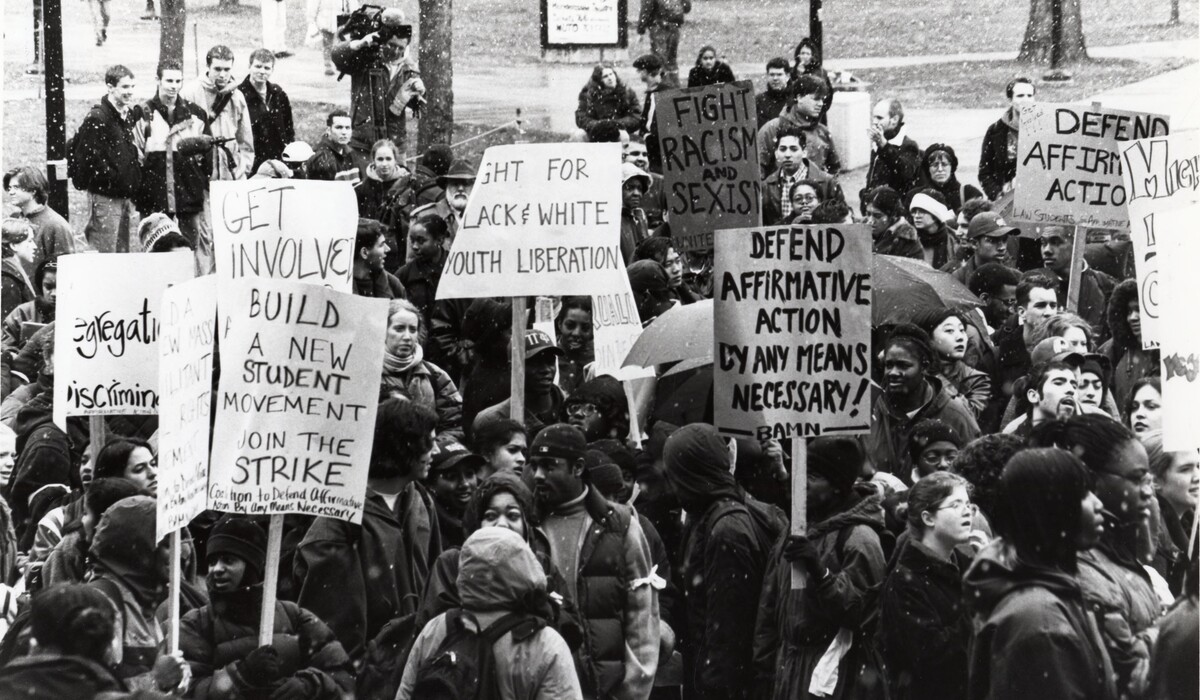I was 6 years old on a Saturday afternoon in November of 1969 when I asked the fateful question.
“What are you watching?”
“Shhh!” My oldest sister, Effie, was intently watching the TV. She waved her hand at me, brushing me aside.
Then, she added at a break in the action, “It’s football.”
I had followed baseball from a very early age, but I had never seen a football game before. I sat down on the floor. Pretty soon, Effie was explaining the game to me. She told me about first downs, penalties, touchdowns, field goals. After each new event took place on the field, she would tell me what had happened.
She also explained the most important rule of all.
“The guys in blue are Michigan,” she said. “They’re good. The guys in white and red are Ohio State. They’re bad.”
All that year, Ohio State had been touted as the greatest college football team in history. They went into the Michigan game undefeated and ranked No. 1 in the country, dominating their opponents by lopsided scores and eye-popping statistics. The Buckeyes were coached by the legendary Woody Hayes. The year before, they had beaten Michigan 50-14, tacking on an unsuccessful-but-gratuitous two-point conversion attempt at the end.
Michigan was a bunch of upstarts, led by a first-year coach named Bo Schembechler, HLLD’05, a former assistant to Hayes. The Wolverines had lost two games earlier in the season, but a win over Ohio State would give them a share of the conference title and a trip to the Rose Bowl.
I remember very little detail of the game. I was young, and I was learning about football as I went along, trying to remember all the names and all the rules. One thing I did remember was the final score: Michigan 24, Ohio State 12. My sister and I were jumping all around and yelling as the final seconds ticked off.
On that day, it was burned into my brain, deeper than almost any other childhood memory: I loved Michigan football.
I loved the uniforms of maize and deep blue with the winged helmets. I loved the gruff, gritty coach. I loved all the players that came through over the years with magical names like Leach, Lytle, Shuttlesworth, Huckleby, Doughty.
From that day on, I watched or listened to nearly every Michigan football game. I learned all the rules, knew all the players’ names. My guide was Bob Ufer, the radio voice of Michigan football.
Bob Ufer, ’43, was certifiably insane. Every Saturday in the fall he would take Michigan fans into another world. Michigan was “Meee-chigan.” Every game was a battle between the forces of good and evil. Bo Schembechler became “General George Patton Schembechler.” The hated Woody Hayes became “Doctor Strangehayes.”

Every play began with Ufer describing the action in hushed tones of secrecy, as if he were leaning over and whispering the play in your ear. “Leach under center, Bell deep, Lytle close.” And when a Michigan player broke into the clear, Ufer’s voice rose in a crescendo of pitch and volume: “He’s at the 50, the 40, the 30, the 20, the 10, FIVE, FOUR, THREE, TWO, ONE, TOUCHDOWN!”
One year, a Michigan fan sent Ufer a horn that had apparently been on George Patton’s jeep when Patton rode into Berlin. Ufer christened it the “General Bo ‘George Patton’ Schembechler scoring horn” and he would honk the horn after every Michigan score. The system was supposed to be three honks for a touchdown and one for a field goal or extra point. But, of course, when Ufer got excited, rules went out the window. Sometimes he would honk the horn for over a minute. And if Michigan made a big play, even though it wasn’t a score, Ufer would start honking the horn.
Bob Ufer wasn’t just the voice of Michigan football. He was its heart. When Michigan won, he would break out in hoarse shouts of joy, and your heart would leap. And when Michigan lost, he would cry, and you cried with him.
When my senior year of high school rolled around, and the time came for me to apply to college, I applied to only one. It would be hard to leave home, and my guidance counselor thought I should go a small school. But when Michigan said “yes,” I accepted without a moment’s hesitation.
Going to my first live Michigan football game was a dream come true. Michigan was playing Notre Dame and my friends and I joined a gathering tide of 100,000 fans that walked through Ann Arbor to the stadium. As we got to the gate, an old man in Irish green looked at me, looked down at the ticket in my hand, and then looked at a $50 bill in his hand. I don’t think I had ever even held a $50 bill in my life, but he could have offered $1,000 and I still would have walked by and gone through that gate.
Michigan won 25-7. But even as I had completed a journey of sorts, my guide was about to leave. Bob Ufer had suffered a heart attack, and he could no longer call the Michigan games. He was in the hospital, and there was a tinge of sadness to the Michigan victory.
At the home game against Iowa a few weeks later, the press box announced a special surprise guest. Bob Ufer stood up and everyone cheered and cheered.
But he never came back. Bob Ufer died later that season.
Before Homecoming, the press box announced Ufer’s passing, and asked everyone to join in a moment of silence. I remember closing my eyes and feeling the hush pass over the crowd.
Even now, I cannot put into words what it felt like to be in the midst of 100,000 people, to hear all of that noise suddenly die out, to hear only the autumn breeze, to relive all the memories that Bob Ufer played a part in creating. I can only say it was one of those once-in-a-lifetime moments, when the world stands still and you can feel the hand of God.
DEMETRIOS METROPOULOS, ’85, died in 2016. He was a partner at Mayer Brown in Chicago and grew up in Saginaw, Michigan.





